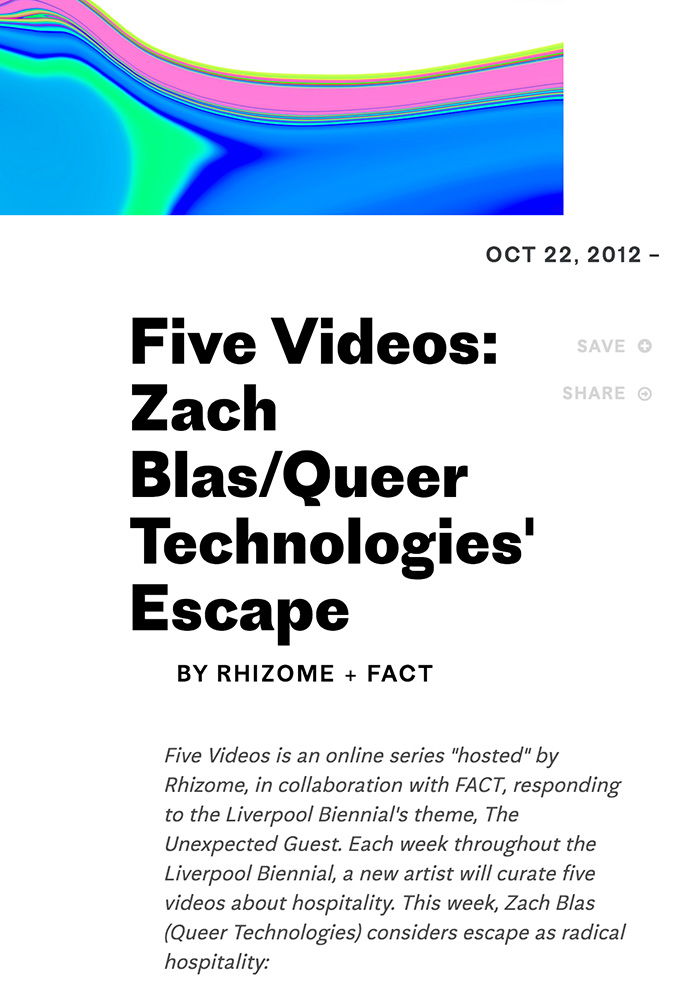In Rhizome, Rhizome and Foundation for Art and Creative Technology.
View Online
The art of escape is the art of constructing an indeterminate form of energy from the encounter and interference with a regime of control. The art of control is not to destroy this energy but to transform it to a new form of energy, one amenable to regulation.
—Dimitris Papadopoulos, Niamh Stephenson & Vassilis Tsianos, Escape Routes: Control and Subversion in the 21st Century
Escape figures as a crucial tactic of resistance against neoliberal governance and contemporary forms of oppression. Escape is a multiplicitous gathering of concepts, practices, sensibilities, acts, and affects; these variations on escape have been named exodus, desertion, nonexistence, illegibility, and idealism. Importantly, escape not only expresses a desire to exit current regimes of control but also to cultivate forms of living otherwise, or living autonomously. Escape, I would argue, is about radical hospitality: it is a collective attempt—aesthetic, conceptual, political—to eradicate forms of control, exploitation, and domination, which just might make the world more hospitable to all.

